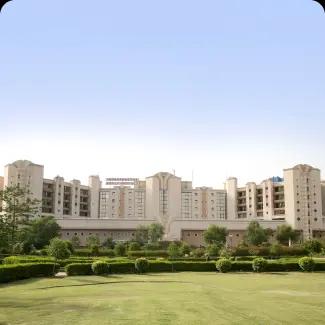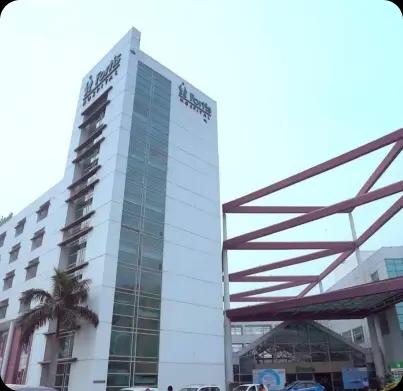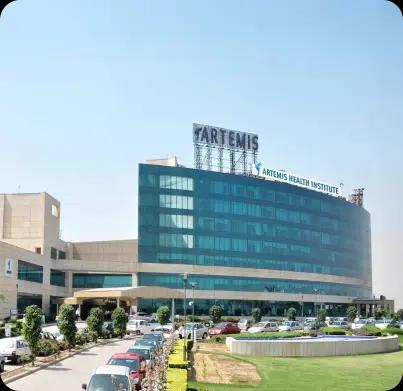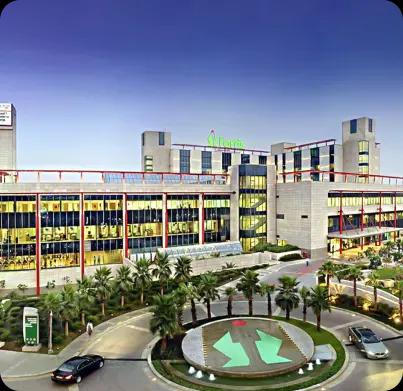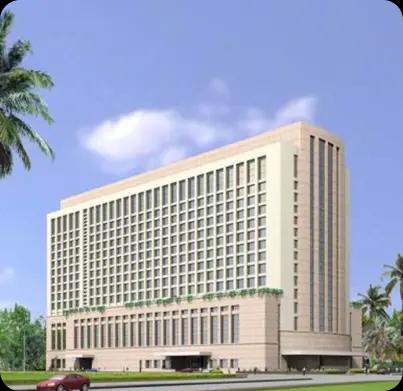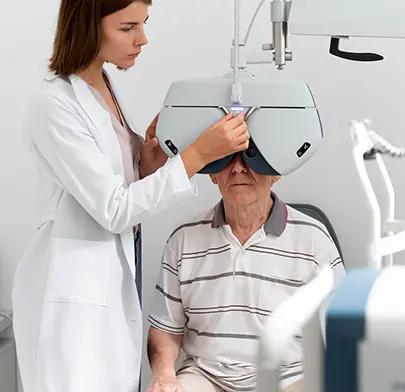
Glaucoma Treatment
Glaucoma treatment aims to reduce intraocular pressure (IOP) to prevent optic nerve damage. Options include eye drops, oral medications, laser therapy, and surgery. Eye drops are often the first-line treatment, promoting fluid drainage or reducing fluid production. Laser trabeculoplasty helps fluid drainage, while surgery creates a new drainage channel. Treatment plans vary based on glaucoma severity and individual needs. Regular monitoring is crucial to manage progression.
Free Pick up and Drop
No Cost EMI
Post Surgery Care
Glaucoma treatment aims to reduce intraocular pressure (IOP) to prevent optic nerve damage. Options include eye drops, oral medications, laser therapy, and surgery. Eye drops are often the first-line treatment, promoting fluid drainage or reducing fluid production. Laser trabeculoplasty helps fluid drainage, while surgery creates a new drainage channel. Treatment plans vary based on glaucoma severity and individual needs. Regular monitoring is crucial to manage progression.
Symptoms
Symptoms
Types of conditions
There are seven main types of Glaucoma Treatment
Refractive errors
Cataracts
Glaucoma
Age-related macular degeneration (AMD)
Diabetic retinopathy
Retinal detachment
Dry eye syndrome
Refractive errors
Your journey to good health begins here

Accredited Hospitals
Nationally accredited hospitals for high-quality care

Multi-language Support
Convey your needs in the language you're most comfortable in

Travel Booking Assistance
Seamless booking assistance for your healthcare journey

Plan your healthcare journey with Karetrip!
India’s Best Hospitals are Partnered With Karetrip
Access World-Class facilities from top Hospitals across India
Consult with India’s most experienced doctors
Experience premium care from India’s leading specialists
Cost Estimation
Learn about the expenses involved in the procedure and what factors affect them.

The average cost of the Glaucoma Treatment in India is around ₹1,50,000 to ₹3,00,000.

₹3,00,000
High Cost
₹1,75,000
Average Cost
₹1,50,000
Low Cost
The LIST of AVERAGE COST of the Glaucoma Treatment across TOP 5 cities in India in Indian Rupee (INR) is as follows :
City
Lowest Cost
Average Cost
Highest Cost
Mumbai
₹1,50,000
₹ 2,25,000
₹3,00,000
Pune
₹1,00,000
₹1,75,000
₹2,50,000
New Delhi
₹1,50,000
₹2,25,000
₹3,00,000
Chennai
₹1,00,000
₹1,75,000
₹2,50,000
Bangalore
₹1,00,000
₹1,75,000
₹2,50,000
Commonly Asked Questions
How long does it take to recover from eye surgery?
Will I experience pain during or after the surgery?
What are the risks associated with eye surgery?
Will I need someone to drive me home after surgery?
When can I resume wearing contact lenses after eye surgery?


"I had a successful surgery at Fortis Escorts Hospital, and it was all thanks to Karetrip's help in finding the right hospital for me. The entire process was smooth and stress-free, with Karetrip handling all the arrangements and answering any questions I had. The medical team at the hospital was outstanding, and the facilities were top-notch. I highly recommend Karetrip to anyone looking for a tension-free healthcare experience."
Read MoreFatima
Chattogram


"Thanks to Karetrip, I got connected with MAX Hospital in New Delhi. The team guided me through every step – from finding the right doctor to handling travel and visas. They made a daunting process feel like a breeze. The care I received at MAX Hospital was outstanding, and I can't thank Karetrip enough for making it possible. They truly put patients first and go the extra mile to ensure a smooth healthcare journey. I'm grateful beyond words!"
Read MoreHasan
Dhaka


"At first, I was unsure about having a medical procedure done in a foreign country. However, Karetrip's team at Indraprastha Apollo Hospital made me feel much better. The hospital was very clean, modern, and had everything they needed to help me. The staff were very kind and did everything they could to make me feel comfortable. I'm really happy with how my treatment turned out, and I appreciate Karetrip for making it easy and stress-free."
Read MoreImran
Sylhet
 Google Reviews4.9/5
Google Reviews4.9/5




I had a successful surgery at Fortis Escorts Hospital, and it was all thanks to Karetrip's help in finding the right hospital for me. The entire process was smooth and stress-free, with Karetrip handling all the arrangements and answering any questions I had. The medical team at the hospital was outstanding, and the facilities were top-notch. I highly recommend Karetrip to anyone looking for a tension-free healthcare experience.
Fatima
Chattogram
 Google Reviews4.9/5
Google Reviews4.9/5




